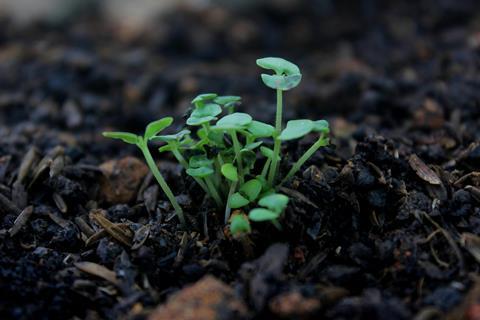An article by soil scientists from The James Hutton Institute, published in the European Journal of Soil Science, http://dx.doi.org/10.1111/ejss.70188, urges us all to play our part in protecting our soil and to heed the lessons learnt from those who have been championing actions to mitigate the effects of climate change.

Soil is an often-ignored natural asset that contributes to our daily life. Soil supports food production, is core to our iconic landscapes, hosts approximately 60% of all biodiversity, helps mitigate climate change impacts and underpins our daily infrastructure such as roads and buildings.
READ MORE: COP29: Doomism is turning audiences off climate action - so let’s share the success stories
READ MORE: James Hutton Limited awarded almost £39,000 to develop innovation campus
But due to human activities, our soils are becoming increasingly degraded, and soil health and the ability of soils to fully function is declining. To address this decline and the capacity of soil to perform as a vital living ecosystem that sustains plants, animals and society, it is important that everyone comes together to help protect and improve soil health.
Dr Karolina Trdlicova, a social scientist at the James Hutton Institute, said, “Positive societal action for soil protection requires effective communication, so there is an opportunity for lessons to be learnt from the communication on climate change which has been arguably ineffective in generating the necessary positive action from all members of society.”
Tipping point discourse
Dr Trdlicova argues that we have the chance to avoid some of the pitfalls that may give rise to the feeling that the situation is already hopeless, and that setting ‘deadlines’ or ‘tipping points’ has not proved to be a helpful strategy in communicating the climate emergency.
It is vital that soil communicators are seen as both credible and trusted voices with their actions matching their advocacy.
She urges those who communicate on topics associated with soil to be mindful of the so-called value-action gap, that is the gap between caring about soils, knowing the importance of soils and positively acting to help protect soils. It is also important that soil communicators do not assume that the public lack knowledge on soils. Many who live in rural communities are highly knowledgeable on the importance of soil.
Positive action
The Hutton, an independent research organisation delivering fundamental and applied science to drive the sustainable use of land and natural resources, has over 90 years of experience of working with soils and farmers, and is responsible for the National Soils Database for Scotland.
Dr Roy Neilson, soil ecologist at the Hutton, says that if they want people to care about soil, communicators should focus on positive action to protect soil that, in turn, generates recognition that soil supports our daily lives. This may avoid the feeling that many have on climate change that there is nothing that can be done.
The opinion piece, The Language of Soil: Learning the Lessons from Climate Change, can be read here http://dx.doi.org/10.1111/ejss.70188




No comments yet